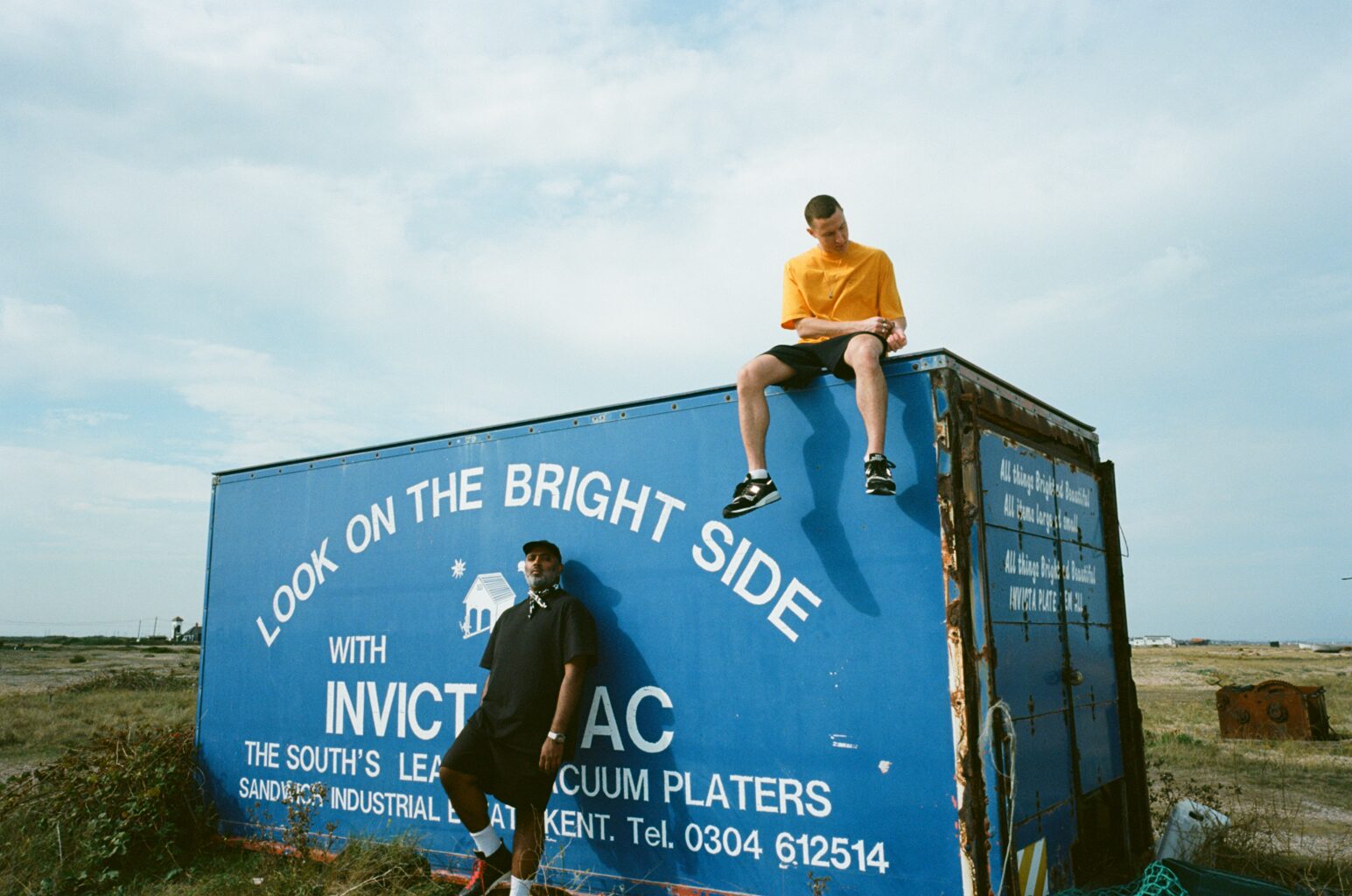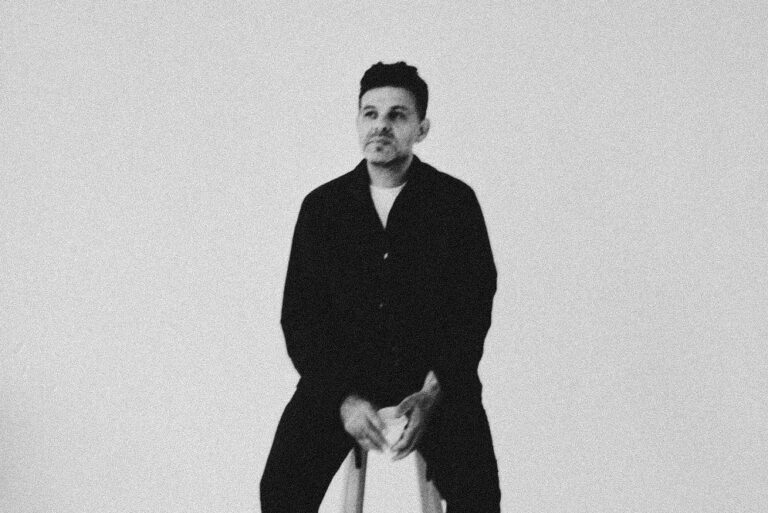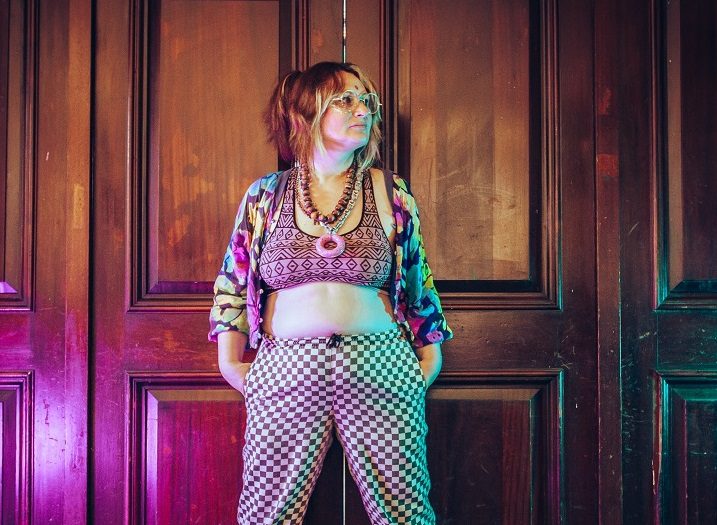Pushing boundaries and blurring the lines between genres is at the core of Ivy Lab’s identity.
Their output might seem ruthless and spontaneous but in reality every release is calculated and carefully considered. Behind closed doors, J [Stray] and Gove [Sabre] have faced struggles since early 2020 like many others in the industry. But despite losing a record deal, being disconnected from their fan base over the pond and uncertainties over the reception to releasing drum and bass again, the duo persevered and things are now looking as positive as ever.
Their most recent release on the legendary Dirtybird – a label known best for its house and techno – demonstrates what Ivy Lab are about as it flexes their ability to flawlessly switch between different moods and tempos. We caught up with J and Gove to speak about career stability and how they’ve been tempted back into the drum and bass world.
How have things been for you guys in the studio recently?
Gove: A lot has changed in the last couple of years. We’ve now heavily moved our BPM preferences downwards. Since 2017 we’ve been focusing more on two pockets: 100 and 150 BPM. 150 has this sweet spot where things sound pacey and energetic but still have that sludginess that can add sleaze to a track. The 100 BPM thing is J’s discovery more than anything.
J: There’s a lot of space to fill down there with grooves and it makes it quite hard to tell what genre it is.
Gove: The pandemic gave us a license to make more low-key music and there was a presumption it all belongs to COVID. But now we’re playing it on the road and it totally works. We went ham and released loads of music during the pandemic, so there are a lot of people who only know us from that period. It all proved to be one long progression as opposed to the COVID phase followed by us going back onto the road with music as hard as what we were playing before.
After being at home for a year and a half you went straight into playing amphitheatres across the Atlantic. How was the transition?
J: I’m not sure if I appreciated how much I’d missed DJing and the impact it has on my mood. We had a really productive pandemic and a lot of good things happened for us. But to not know when we’d be back out on the road, especially since we predominantly work in The States, was tough. One of the first shows was at Red Rocks which is an amphitheatre. We really enjoyed it and it felt so important. Then we did the first three hour set that Ivy Lab has ever performed and it was an opportunity to play all of the music that we’d created, amassed and rediscovered. The response was heartening and an amazing way to kick-off a tour.
Gove: The thing about being so far away from our audience in The States is that it’s easy to worry that they’d forgotten about us. Getting gratification from positive comments doesn’t really work for us, it doesn’t keep us grounded or optimistic. Having that face-to-face positivity is essential. We don’t take praise online at face value because people can be performative at times.
J: I was thinking the same thing, everything felt so distant.
Gove: We work in the US where a lot of artists whom we share a circuit with were getting support. Some of them never even stopped working, but I was thinking that I need to polish my CV or go on LinkedIn. That’s how important it is for us to be on the road now.
J: Big shouts to our relatively new manager, Shai, who’s been chaperoning this whole process and making magic happen on the ground in The States.
You talked about the struggles over lockdown, but you still went on to release a load of music for free. What was the motivation behind that?
Gove: People don’t know this but just before COVID we had a record deal ready to sign for a pretty decent sized record label and were on the cusp of leaving the 20/20 thing to one side. But when it fell through we were left with all of this music and weren’t sure what to do. It felt like it belonged to a certain era and losing the deal was heartbreaking. So we finished it all off and released it as quickly as possible. The Spotify CEO piped up and said that if you want to be viable as an artist on the platform then you’ve got to be putting out music all of the time. Irrespective of how people feel about their controversial pricing model, that’s probably the truth. The old idea that releasing an album purchases you a year of hiatus or longevity is dead.
J: I was never a massive fan of that model. I understood that it worked in some ways, but I’ve always pushed to release everything and said that more good music will come. That’s the mantra for believing in yourself creatively. Keep the releases coming and make sure people don’t forget about you at a time when the scene is the busiest it’s ever been. You sleep for however many months and people come along and replace you on release radars or playlists.
Gove: Over the winter of 2020 we put out 15 tracks. That was amazing because we could see everything performing really well and it added over 30% to our reach. But that started to decline after three or four months. All that hard work doesn’t stick in the same way that you’d expect it to under 2015 rules. Do we sulk or get on with it? We knew we couldn’t carry on releasing music in that way so we did the streams, merchandise and put other things out into the world.
I can imagine that pace can be quite a lot to deal with. You recently toyed with the fusion between electro and drill with Suzuki and NASDAQ. Was that a direct result of experimenting in the studio over the pandemic?
J: Both of us were really into listening to drill around that time and noticed that instrumental trap was an offshoot of trap with rappers. It created so many interesting results off the back of it. Drill had begun to experience that but it was very much at the dawn of instrumentals. That’s when experimentation and fusion starts to happen, you wonder what it tastes nice with and where it fits. The concept of a techno/ drill style beat landed as being really fascinating and it felt exciting to be tracing new territory.
Gove: If the core proposition of Ivy Lab is that we make instrumental versions of movements in the rap world, why wouldn’t we make instrumental drill?
The combination of those two sounds really works. Not long before that you put out the three winter EPs. Do you have any plans for something conceptual again?
Gove: We were thinking what we’d do with ourselves in the summer and that was when Dirtybird reached out. We were thinking that we could do the winter EP’s but with other labels. The record labels don’t mean a lot to all of our audience.
J: Dirtybird have a loyal fanbase and a lot of those people may not have heard of us before, but they’ll be checking the release. So the label matters when it’s one like Dirtybird.
It’s a massive label to release with and it seems like you’ve showcased how wide the scope of your sound is. Was the variety in the EP intentional?
J: I’m not sure that having a record which spans as many different styles was intentional. It’s a natural representation of what we’re writing at the moment.
Gove: It became this broad skillset showcase, which is great for us but it’s not how we’ve released music in the past. We rarely put out an EP which is anything like this, but the hope was that people would think “Those guys have got range.” We can’t deny the fact that being thought of as having breadth is wicked and has given us a lot of confidence to carry on making a broad range of music.
J: We also feel like we have a license to create drum and bass at the moment, especially since it’s enjoying a resurgence in the US. For us there’s this gratification to know that we came from it. Whether people know that or not, it doesn’t matter.
Gove: We’re not jumping on any bandwagon. We helped make this bandwagon five or six years ago so it’s fine.
J: We can now make, release and DJ drum and bass as a pan-genre act. We’ve put in the work to get to that point over the years and I think it’s been so long since we were a D&B-only act that there’s no sense of jeopardy with going back there. We can be a multi-genre act, people want and expect that from us.
Do you think this attitude has come from the time you’ve had away from D&B and how much you’ve distanced yourself from it?
Gove: Options is a retro D&B tune that takes its ideas from the past. It’s not trying to be part of the current super well produced, sound design heavy contemporary drum and bass thing. I don’t think we’ve got a place in that world.
J: Other people are taking care of business so well with that.
Gove: As far as we’re concerned, there’s loads of unfinished business with the organic liquid thing. The license to have a retro component to drum and bass has been introduced to the wider world by people like Sherelle, Sinistarr, Deft and Fixate. Shout out to all of those people who’ve helped create a lane that we can re-emerge into. Just going back into D&B as it existed before then wasn’t an option for us. I don’t think we would have done a very good job. So we bided our time with no intention of this happening and the moment came.
You’ve got some classic drum and bass shows coming up in the UK. Where did that idea come from?
J: It came from doing a record with Frank Carter who’s a singer we used to work with a lot. He hit some hard times and we made Soul Sista with him to raise funds. Some people really liked it, then promoters got in touch and asked our agent if it would be possible to play a classic drum and bass set.
Gove: It was Rich [Reason] in Manchester. He saw we released the track and asked if we wanted to do a drum and bass set. We just thought “It’s Manchester and it’s Rich, let’s try it out and see what happens.”
J: He announced it and then the word spread. We asked ourselves if we’re down with doing a mini tour without loads of bells and whistles. Part of the appeal for us was that we don’t need to dig for all of the new music, but to delve back into a golden era of music that we both feel so passionate about DJing was really appealing.
Gove: One thing it does which is incredibly liberating is take you out of the dubplate rat race. Trying to keep up with the pressure of playing the latest and biggest dubs is such bullsh*t. When you don’t care who’s on the guestlist or lineup and simplify it down to playing what you think are bangers that people will like, DJing is absolutely amazing. I never stopped making D&B. If I had nothing to do on the weekend with no projects to wrap up and no shows, I’ll be making drum and bass. It’s weird D&B and pretty sh*tty a lot of the time.
J: It’s not that bad, it’s pretty good [laughs].
I was going to say…
Gove: It’s a positive mental exercise because there’s no end goal to it. Are we ready to turn those bits of frolicking into things we commercially release? I don’t know, Options has turned up an interesting conundrum for that. We weren’t in this place two months ago when we were submitting masters to Dirtybird, but now J and I talk about this all of the time.
You went from focusing on drum and bass to the 20/20 stuff so it seems like there is a license to indulge if you feel like going back.
Gove: It’s just the quality of music we’re thinking about. How many more tunes are there which are of the same standard as Options? Personally, I reckon we have four or five. People have heard them and agree, it’s not like our phonebook doesn’t allow us to go back and do a good job of putting out drum and bass. But can we finish them to a high standard? It’s not quite as effortless as putting together a three minute rap instrumental. The audience and engineers expect more from it. There’s a lot more to consider.
Either way I’m sure people will be gassed to hear that.
Gove: If people get gassed up about it and tell us that it’s something we need to do, we’ll make it happen. We need that gratification in-person.
You mentioned your solo music, are Sabre and Stray still alive in terms of production?
J: The only scenario in which there would be any desire to release as Stray would be if I was really passionate about a style of music that G wasn’t into. That just hasn’t happened yet. Let’s say I write a demo, no matter what genre, if I bring it to Gove who says it’s sick then what’s the point in not putting it out as Ivy Lab? It’s always going to land better, more people are going to hear it and it’s going to get the other person’s input which we always trust.
Gove: I want J to finish off my music and vice versa.
J: The other person is always into it. There is the license to disagree and say that they can put it out solo, but that just doesn’t happen.
Gove: I can’t imagine what that sound is because we’re making some weird stuff at the moment. The first person I’m making a track for is J before anyone else. I already know what will pass or fail the J test. So by the time he hears it, of course he likes it. He was the person I made it for.
J: We’re not writing anything off in the future, but how we want music to land and its purpose are the most important things and Ivy Lab is the best option at the moment. We have discussed aliases as a duo as a platform for releasing different styles of music.
What do you consider to potentially be outside of the Ivy Lab focus that you’d consider an alias?
J: Techno. The “techno” that we’ve written is bass music that borrows heavily from techno-style grooves. Our audience seem to be so open-eared, particularly over the pond as Gove mentioned, that I’m not even sure they’d notice. I think we can get seamlessly from one end to the other genre-wise over the course of a DJ set. When I say techno, I don’t mean purist techno. This is still sort of broken-beat, with snares and borrows heavily from the structure of bass music.
You’re already consistently pushing boundaries so how much of a jump would this be?
Gove: My gut feeling is that the alias might take second place to the label that releases it. I’d like to play it to people who are further away from what we do to get their read on it and work out what it is. It’s going to come out and it’s going to be more different than anything anyone has heard from us so far. But we want to get it right, to feel authentic and like it’s from the heart.
It’s exciting to hear, considering what you’ve already done in the last six or seven years. What’s next then?
Gove: Between now and the end of the year we’ve got a bunch of the classic D&B shows in Europe and we’re also supporting Noisia on their farewell tour. Shouts to those guys because they are one of very few acts where you can say if there was no Noisia, there’s no Ivy Lab. They really helped put us on when we were trying to make a name for ourselves doing something different. Eternally grateful for the support.
Another exciting thing is an Ivy Lab remix of a Little Snake and Flying Lotus tune. So much love for the homie Little Snake. That’s something which will be out by the end of the year and there are a couple of other tracks signed to another label. Then we might try to sneak out another 20/20 release.
Any shoutouts?
Gove: Shoutout Dirtybird, to Claude for making the release happen. I’m not sure how we ended up being on his radar but he’s been really kind and supportive of our whole enterprise for years now. Every time an opportunity arises to get us involved, whether it’s a festival, the label or just a shoutout in an interview, he does it. It means a lot to us.
Ivy Lab – Press Play is out now on Dirtybird
Follow Ivy Lab: Instagram / Soundcloud / Facebook / Twitter


